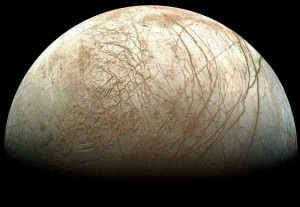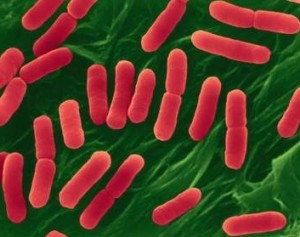How to become an astrobiologist
 [For my popular science book on astrobiology, Life in the Universe: A Beginner’s Guide click here.]
[For my popular science book on astrobiology, Life in the Universe: A Beginner’s Guide click here.]
[For The Knowledge: How to Rebuild our World from Scratch click here]
I often get emailed by people wanting to know how they can get involved in astrobiology – what A-levels or university degree they should pick to become an astrobiologist, or just how they can find out more about what’s happening right now in the field. So I thought it would be useful to compile my various responses into a single post here.
The encouraging reality is that you can get into astrobiology from pretty much any scientific background you like. I did a first degree in biology, but I have astrobiology friends who have come from physics, astronomy, chemistry, or geology. Astrobiology is a very ‘interdisciplinary’ field and sits as the Venn diagram overlap in the middle of many different kinds of science, and this breadth and diversity is exactly what makes astrobiology so exciting.

Unfortunately, there aren’t any dedicated undergraduate degrees in astrobiology in the UK, although several universities do offer a module as part of a wider degree in, for example, geology, planetary sciences, biology, or physics and astronomy. So the best route would be to work hard at A-levels, and then choose a degree in whichever subject you find most interesting – you really need to be passionate about something to study hard at it for three to four years. My little secret is that I found biology my least interesting course at A-level (not that my teachers were any less inspirational than those for physics, chemistry or maths) – it’s a lot of learning the names for things, labelling diagrams, and memorising five-point essays on DNA replication. But, building on this base of knowledge, it really blossoms into an incredibly fascinating subject at undergraduate level – learning about the molecular machinery that makes life work, for example.
So if you want to become an astrobiologist, you could study pretty much any STEM subject at university.
Also, bear in mind that you don’t necessarily need to enrol to actually attend as a student – the Open University offers courses, including a module in astrobiology, by distance learning. The University of Central Lancashire offers a University Certificate in Astrobiology. Another good option for nurturing an interest is to take a MOOC (massive open online course) such as this one run through the University of Edinburgh, although you won’t get course credits towards a formal degree. Other online courses include the series of lectures recorded and made available on AstroBioVideo.
If, once you’ve graduated with your degree, you still want to be an astrobiologist you can move into the field by applying for a PhD studentship. If you’re lucky, you might see something relevant advertised in the back pages (or online) of magazines like NewScientist or Nature journal, but for a relatively niche field like astrobiology you’ll probably need to be a little more proactive in finding a good opportunity for further study. The best strategy is to identify a research group that is involved in the part of astrobiology you are interested in – whether that’s extremophile microbes or astronomical searches for exoplanets – and contact the PI (principal investigator) of the group to ask whether there are any PhD positions available. It would be a very good idea to first have an explore around the group or lab’s website and read some of their recent papers, so you’ve got a good appreciation of what they do and how that fits with your own interests. This is slightly out of date now, but I published a paper in 2009 that surveyed the astrobiology research groups active in the UK (download pdf here) that might be helpful to get you started. For those interested in opportunities in the US, there is a little advice about the NASA Astrobiology Institute.
 There are also societies you may be eligible to join to keep yourself up-to-date with developments and for support throughout your career. Postgraduate students, post-docs or staff members can join the Astrobiology Society of Britain (I sit on the committee of the ASB). As a member of the ASB you’ll be able to attend their biennial conference and will receive regular newsletters listing PhD and post-doc opportunities and upcoming meetings and other announcements, and the website provides a lot of other useful information, including book reviews of the past few years of publications. Another society that may be of interest is the UK Space Biomedicine Association (UKSBA), who also host regular conferences open to all. I’m also a Fellow of the Royal Astronomical Society (it’s only £1 to join as an undergrad or postgrad student) which I’ve found to be really useful.
There are also societies you may be eligible to join to keep yourself up-to-date with developments and for support throughout your career. Postgraduate students, post-docs or staff members can join the Astrobiology Society of Britain (I sit on the committee of the ASB). As a member of the ASB you’ll be able to attend their biennial conference and will receive regular newsletters listing PhD and post-doc opportunities and upcoming meetings and other announcements, and the website provides a lot of other useful information, including book reviews of the past few years of publications. Another society that may be of interest is the UK Space Biomedicine Association (UKSBA), who also host regular conferences open to all. I’m also a Fellow of the Royal Astronomical Society (it’s only £1 to join as an undergrad or postgrad student) which I’ve found to be really useful.
If you want to keep abreast of recent advances in astrobiology there are a number of great websites to scan through regularly. My favourites are the Astrobiology magazine and NASA Astrobiology, and for space exploration in general there are of course the NASA and ESA homepages. And finally, if you want to get a book or two for a solid overview of the whole of astrobiology you can sink your teeth into some of these recommended reads. Obviously, I’ve cheekily slipped my own on the top there, but the list below gives a range of great books that are pitched at slightly different levels:
- Life in the Universe: A Beginner’s Guide, Lewis Dartnell
- The Living Cosmos, Chris Impey
- The Eerie Silence: Are We Alone in the Universe?, Paul Davies
- How To Build A Habitable Planet, Langmuir & Broecker
- Introduction to Astrobiology, (Eds.) Rothery, Gilmour, Sephton
- Planets and Life: The Emerging Science of Astrobiology, (Ed.s) Sullivan & Baross
- Science, Society, and the Search for Life in the Universe, Bruce Jakosky
(and for a more complete list, I’ve edited reviews of over 60 new astrobiology books on the ASB website)
Also bear in mind that if you’re interested in astrobiology and space exploration there are many different ways you can get involved in your career. As with any field of science, there is a huge range of jobs available besides research or lecturing at university: you can work in project management and administration (helping space missions get funded and co-ordinating their construction and operation); or in the press office and inform the media and public about what’s going on; or as a journalist writing about the latest discoveries in newspapers, magazines, websites or books; or get into science policy and making sure the government makes well-informed decisions about new laws or funding or other priorities.
You can also read me talk about science careers at:
I hope this has helped and you may also find my Astrobiology Q&A interesting. If you have other questions do feel free to ask through Twitter or email, but please make sure you’ve read through the comments below to check that your question hasn’t already been answered. Here is a (incomplete) list of astrobiology organisations around the world that would be far better placed to offer you help on national questions:
- Europe – European Astrobiology Network Association (EANA)
- USA – NASA Astrobiology Institute (NAI)
- Sweden/Denmark/Finland/Norway – Nordic Network of Astrobiology
- UK – Astrobiology Society of Britain
- Australia – Australian Centre for Astrobiology (‘austrobiology’…? ;oD )
- Canada – Canadian Astrobiology Network
- France – Société Française d’Exobiologie
And finally, if you’re looking to publish some of your astrobiology research, these are some of the field-specific journals (I’m a Senior Editor at Astrobiology journal):
374 comments